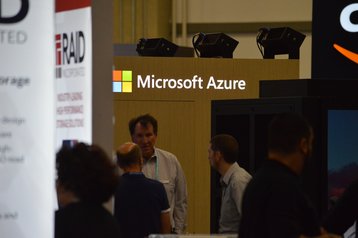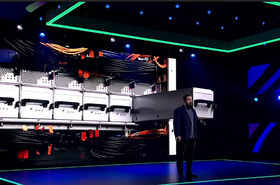Microsoft's chief technology officer, Kevin Scott, called supercomputing speculation "amusingly wrong" in a post welcoming Jason Taylor to the company from Meta.
The comments come a month after reports that Microsoft is considering building a $100 billion supercomputer campus called Stargate to train OpenAI models.
"There’s recently been a bunch of speculation about our supercomputing plans, most of it amusingly wrong," Scott said. "But it is true that this work is mind-boggling in its ambition and complexity."
On Twitter/X, Microsoft supercomputing principal engineer Glenn K Lockwood appeared to confirm Scott's statement was about Stargate: "My favorite part of this news that Microsoft hired a deputy CTO for AI supercomputing is Kevin Scott throwing shade on all the Stargate misinformation/rumors floating around."
In late March, The Information reported that Microsoft was considering the Stargate supercomputer, launching in 2028 and growing to 5GW by 2030. The publication cited multiple sources, and said that Scott was involved in the effort.
It added that the company had yet to settle on a location, nor had it decided on the architecture or chips.
Since the story was published, several data center executives have told DCD that they heard rumors of Stargate.
"I was hearing about - it wasn't called the Stargate at the time - but hearing rumblings of building much, much bigger machines," Brian Janous, formerly the VP of Energy at Microsoft, told DCD. He left in 2013 and now leads his own energy consultancy company.
"I do see a pathway to multi-gigawatt, I think everyone is thinking about it. Part of the evidence of that is, if you look at [energy utility] AEP, they announced that they had something like 80 gigawatts in queue. The reason AEP has so many gigawatts in queue is everyone is buying land adjacent to their 765kV system.
"They have the largest 765kV system in the US. So Amazon's bought land there, Meta's bought land there, Google's bought land there, Microsoft bought land. They're all buying the same thing, which is access to that 765kV as it's the only way to power multi-gigawatt data centers."







